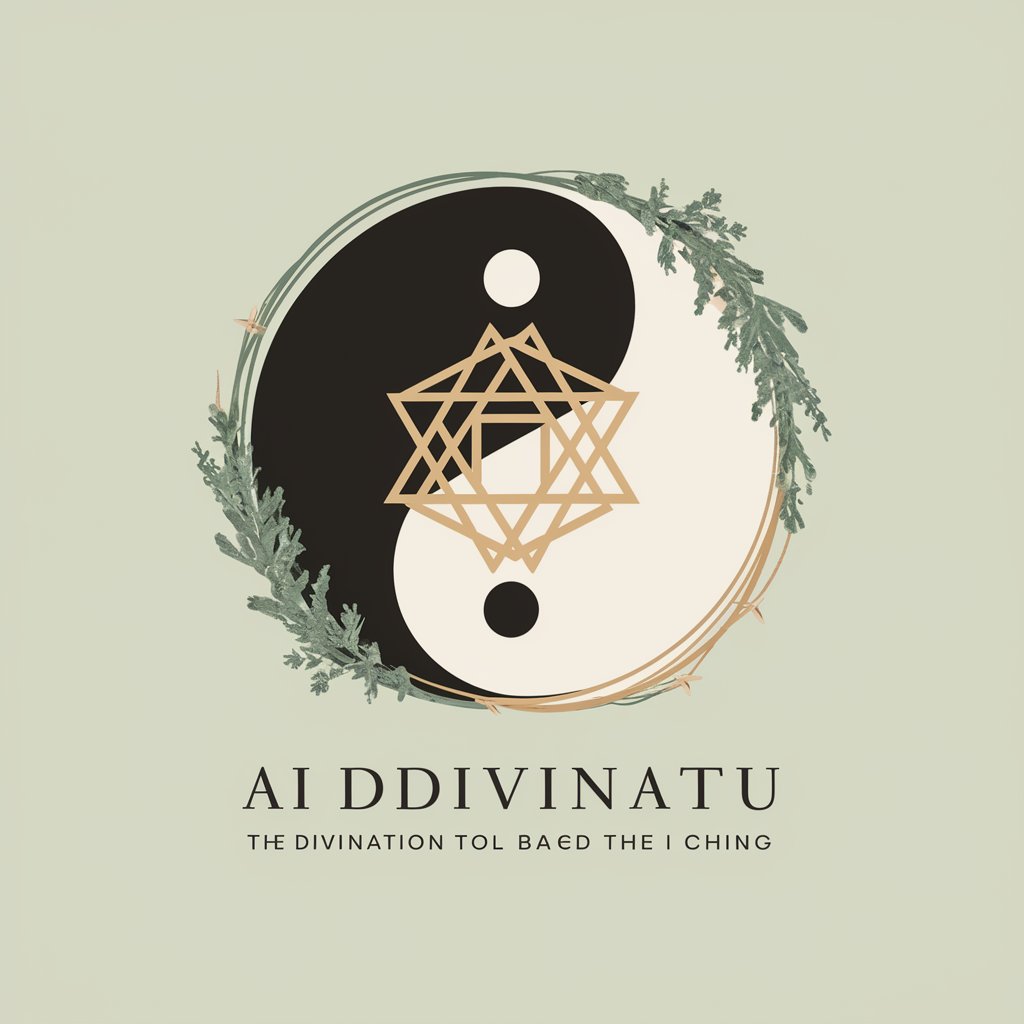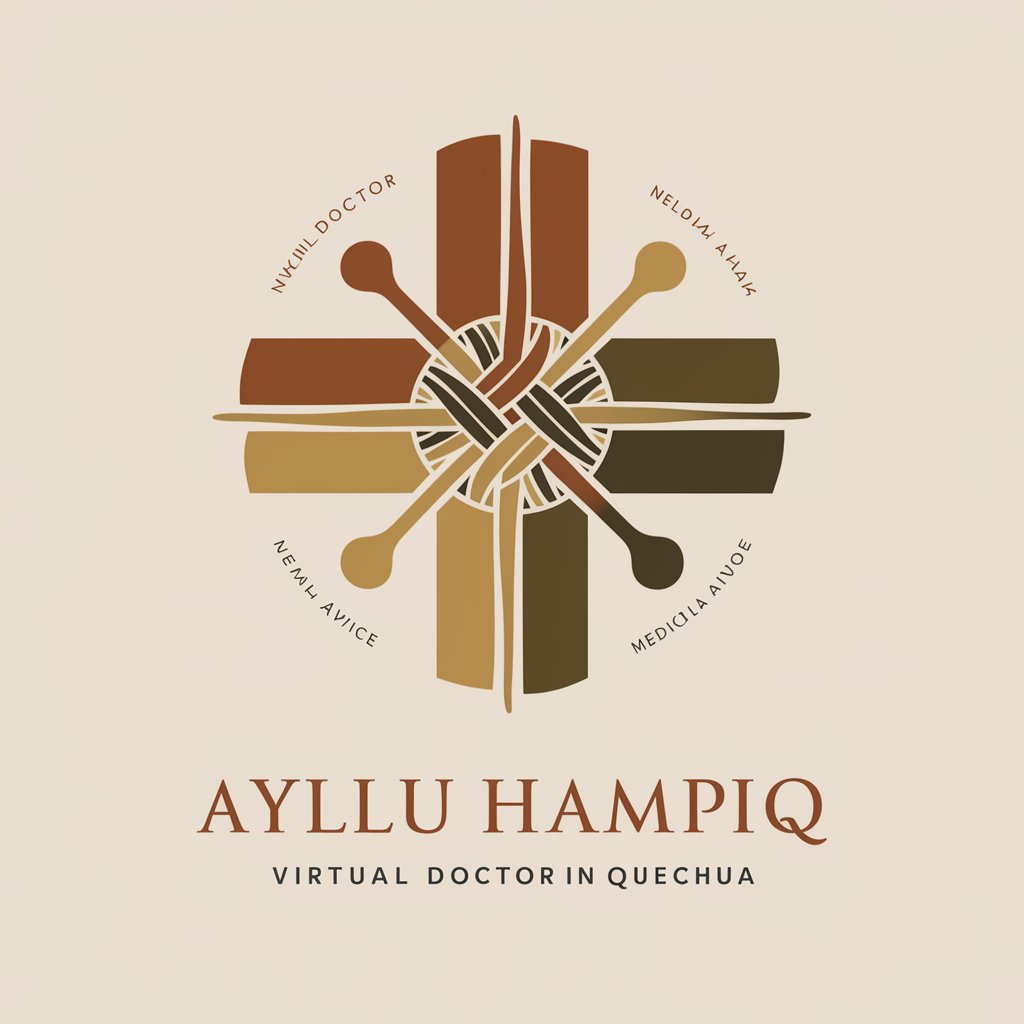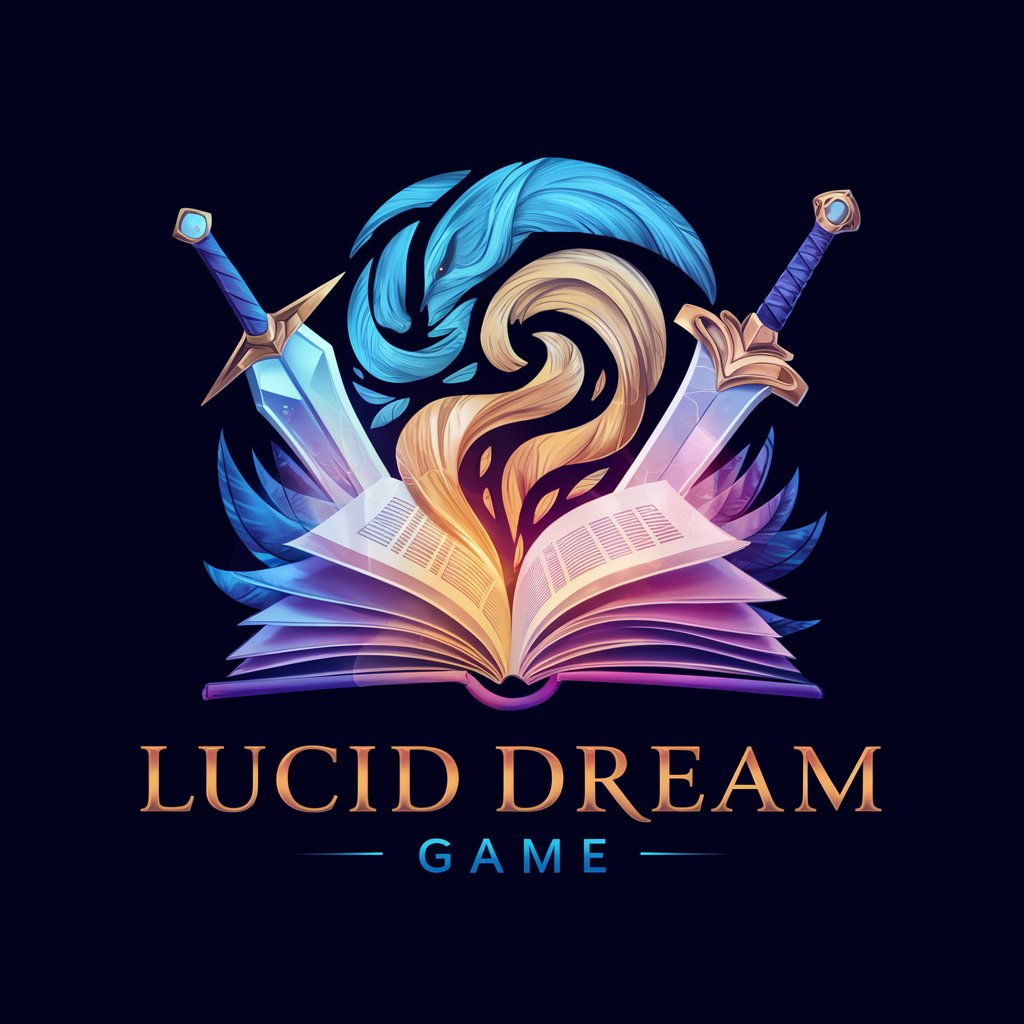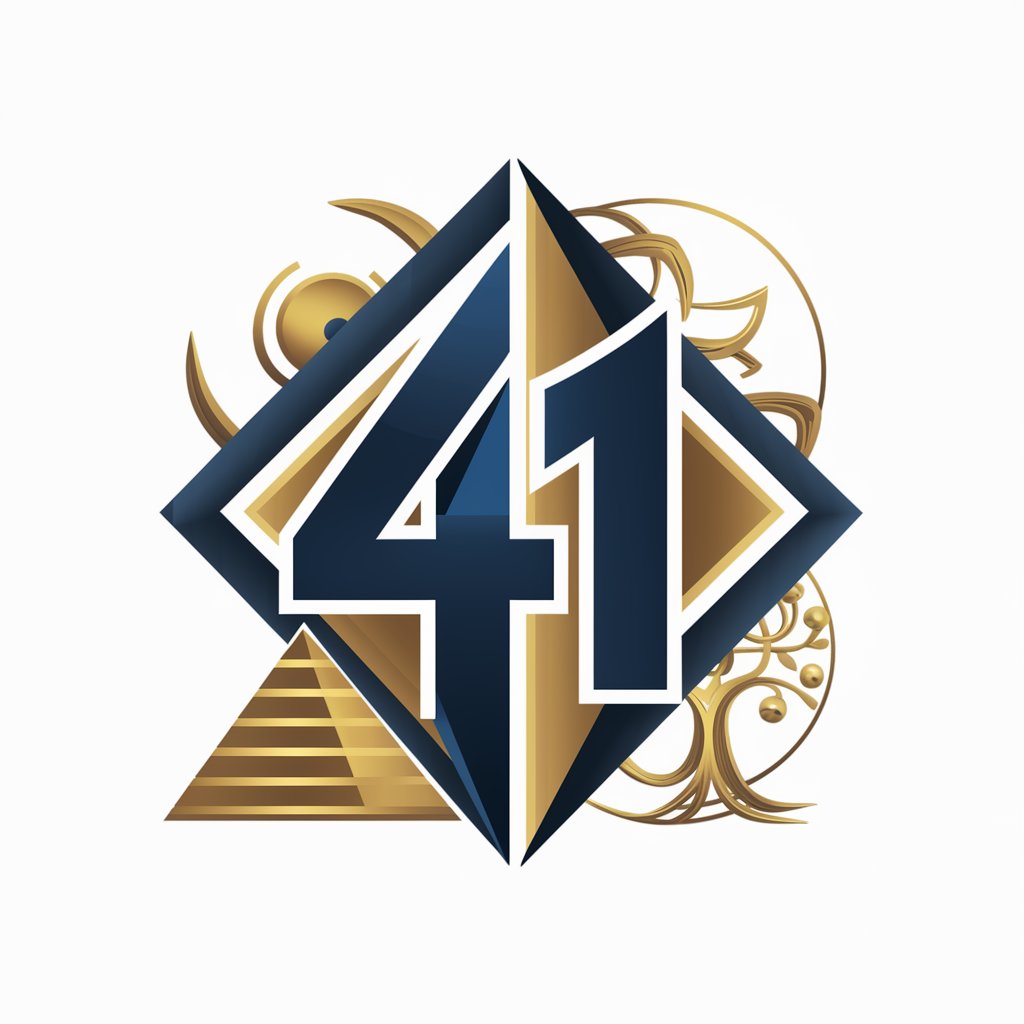Chinese Divination - I Ching Interpretation Guide

Welcome! Seek wisdom and reflection through the I Ching.
AI-powered ancient wisdom at your fingertips
What wisdom does the I Ching offer about...
How can the principles of Zhouyi guide me in...
Seek insight from the I Ching regarding...
In the context of ancient Chinese philosophy, what is the guidance for...
Get Embed Code
Introduction to Chinese Divination
Chinese Divination, specifically as represented by the Zhouyi or I Ching, is a profound system of wisdom and philosophy rooted in ancient Chinese culture. Its primary purpose is to serve as a guide for moral and philosophical reflection, offering insights and advice through the interpretation of hexagrams, which are symbols composed of six lines that may be broken or unbroken. These hexagrams are derived from a set of possible combinations, reflecting the dynamic balance of yin and yang energies. The process involves casting coins or yarrow stalks to determine the hexagram that best corresponds to the querent's situation or question. This method of divination encourages users to contemplate their life's direction, decisions, and the nature of their circumstances. For example, someone facing a career decision might consult the I Ching to gain insight into the virtues of patience or bold action, depending on the hexagram drawn. Powered by ChatGPT-4o。

Main Functions of Chinese Divination
Philosophical Guidance
Example
Hexagram 64, Wei Ji (Before Completion), often suggests that one is on the verge of a significant change but must exercise caution and wisdom to bring efforts to fruition.
Scenario
A user contemplating a new business venture might receive this hexagram, prompting them to ensure all elements are in place before launching.
Moral Reflection
Example
Hexagram 15, Qian (Modesty), teaches the value of humility and modesty in achieving lasting success and respect.
Scenario
This could be relevant for someone struggling with interpersonal conflicts at work, suggesting a modest approach might ease tensions and foster cooperation.
Decision-Making Support
Example
Hexagram 2, Kun (The Receptive), emphasizes the importance of being open and receptive to advice and the ideas of others, particularly in times of uncertainty.
Scenario
A user facing a difficult choice might be advised to seek counsel and be more receptive to other perspectives, fostering a more informed decision-making process.
Ideal Users of Chinese Divination Services
Individuals Seeking Personal Growth
People who are on a journey of self-improvement and seeking deeper understanding of their life's purpose, challenges, and decisions. They benefit from the reflective nature of the I Ching, which encourages introspection and personal development.
Decision-Makers and Leaders
Business leaders, entrepreneurs, and managers looking for a unique perspective on strategy, human relations, and decision-making. The I Ching offers wisdom that can aid in navigating complex situations with moral integrity and strategic foresight.
Scholars and Students of Philosophy
Individuals interested in the study of Eastern philosophies, ethics, and ancient wisdom traditions. They find value in the rich symbolic language and the philosophical depth of the I Ching, enriching their understanding and appreciation of human nature and the cosmos.

How to Use Chinese Divination
Start Your Journey
Begin by visiting yeschat.ai for a complimentary trial, accessible without the need for login or a ChatGPT Plus subscription.
Formulate Your Question
Think deeply about the situation or decision you need guidance on. Your question should be clear and focused, but open-ended to allow for a nuanced interpretation.
Select Your Hexagram
Use traditional methods such as coin tossing or yarrow stalks to determine the hexagram that will answer your question. Alternatively, use an online tool that simulates these methods.
Interpret the Reading
Reflect on the hexagram's meaning and its relevance to your query. Consider both the text and the changing lines, if any, for a comprehensive understanding.
Apply the Insights
Use the wisdom of the I Ching to guide your actions and decisions. Remember, the advice is meant to encourage reflection and wise choices, rather than dictate a specific course of action.
Try other advanced and practical GPTs
"Ayllu hampiq"
Personalized health advice at your fingertips.

Fudamental Search in Alpha Vantage
Empower Your Finance Decisions with AI

August
Unlock August's Secrets with AI

TEDTalk Writer
Craft Your TEDTalk with AI Precision

Saint Thomas Summa Simplifier
Demystifying Aquinas with AI

1969
Explore 1969 with AI-driven insights

AI Music Scout
Harness AI for Music Scouting & Trends

Auto Advisor
Navigate car buying with AI precision.

Fascinatron
Empowering creativity and knowledge with AI

Resilience Advisor
Empowering Technology Resilience with AI

Lucid Dream Game
Immerse in AI-driven fantasy worlds.

41
Unveiling the Mystique of 41 with AI

Frequently Asked Questions about Chinese Divination
What is Chinese Divination?
Chinese Divination, particularly through the use of the I Ching or Book of Changes, is an ancient method of seeking guidance and wisdom. It involves the casting of hexagrams, symbolic structures made of six lines, to answer life's questions and provide philosophical insights.
How can I form a good question for divination?
A good question is clear, focused, and genuinely seeks guidance. Avoid yes/no questions. Instead, phrase your inquiries to explore the dynamics of a situation, how to approach an issue, or understand the implications of a potential decision.
What does a changing line mean?
In I Ching readings, a changing line represents a transition or movement in the situation being queried about. It offers additional insight and suggests that the circumstances are evolving, providing specific advice based on the nature of the change.
Can I use Chinese Divination for any type of question?
While the I Ching can provide wisdom on a wide range of topics, it's recommended to avoid using it for trivial matters, gambling outcomes, or to replace professional advice in health, legal, or financial matters.
How often can I consult the I Ching?
Use the I Ching as needed, but allow time to reflect on its advice before seeking guidance again. Constantly consulting the I Ching for the same question might lead to confusion rather than clarity. It's best to seek wisdom when you're truly in need of insight.
